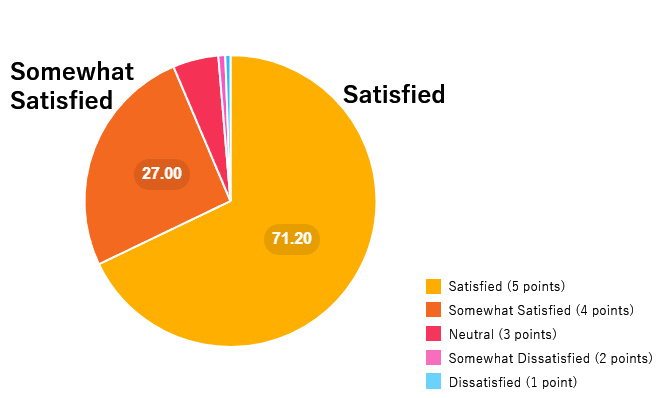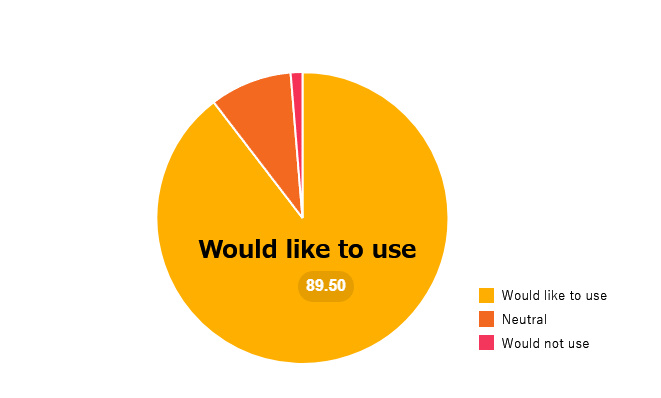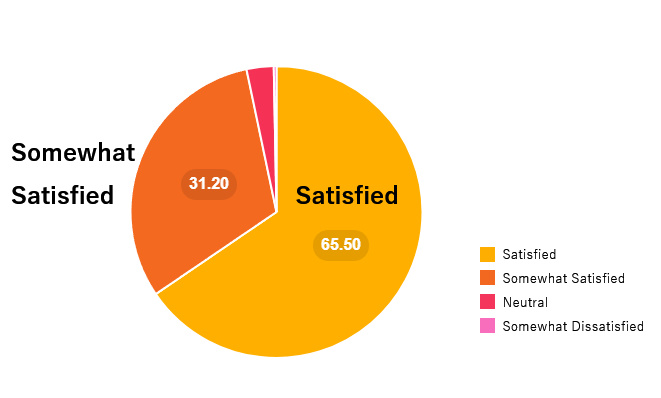Results of iPax Survey
We received high praise from 373 physicians who experienced iPax auscultation.
Artificially created video by ChatGPT@HeyGen
The survey was conducted by Telemedica at conferences and study groups they participated in from January 2023 to June 2024.
Overall satisfaction (rated on a 5-point scale) was highly rated, with 98% of respondents giving a score of 4 or higher.

Main Evaluation Comments on Overall Satisfaction
- The accuracy is amazing.
- It was close to actual auscultation.
- Easy to hear and realistic.
- It was fun.
- It was interesting.
- Easy to compare and understand.
- It was educational.
- Realistic.
- The difficulty level was just right.
- Important for education.
In response to the question “Would you like to use iPax again?” 90% of the doctors expressed their intention to use it again.

Main Evaluation Comments on Reuse Intention
- I want to continue using the system.
- It seems good for education.
- I want to use it for training residents.
- It is beneficial for young doctors’ studies.
- Useful for group discussions and conferences.
- Unique content that can be shared among multiple people.
- Repeated practice can lead to improved diagnostic skills.
- Easy to understand as a teaching material due to typical findings.
- Using a stethoscope creates a good sense of tension.
- It is interesting because it feels like interacting with real patients.
In terms of novelty, many doctors rated iPax as a “new experience.”
Main Evaluation Comments on Novelty
- The touch panel operation is new.
- It feels like interacting with real patients, which is interesting.
- It’s a new learning method with content I’ve never experienced before.
- New for self-learning.
- It was interesting to be able to auscultate in a group.
- I want to use it for training students and residents.
- Useful for teaching students and residents.
- It’s impressive that the sound changes depending on the location, just like in real patients.
- It’s usually difficult to confirm auscultation skills.
- I felt it effectively expresses the change in sound depending on the auscultation site.
- I learned a lot from the importance of carefully auscultating both upper and lower lungs.
- There are many aspects that can be applied to actual clinical practice.
- It provided a new experience.
The evaluation of sound quality had a satisfaction rate of 96.7%, highlighting that the sounds are as realistic as in actual practice.

Main Evaluation Comments on Sound Quality
- It was good that distinguishing between sounds was necessary.
- The sound was realistic.
- I could hear various cases.
- I was surprised by the realism of the sound.
- I could listen to the sounds that I don’t usually listen to.
- Using a stethoscope to differentiate the sounds.
- Easy to hear and realistic.
- Realistic.
- It was interesting to be able to auscultate.
- Easy to compare and understand.
In the evaluation related to actual clinical practice, it was praised for creating a sense of tension similar to diagnosing real patients.
Main Evaluation Comments on Actual Clinical Practice
- I was able to experience auscultation similar to actual practice.
- It felt like interacting with real patients, which was interesting.
- I want to use it for training residents.
- It felt close to actual clinical practice.
- It was educational to use a stethoscope to listen to lung sounds.
- Useful for group discussions and conferences.
- Helpful for diagnosis.
- There are difficult cases, but they are important.
- It’s not just about listening to the sounds, but also auscultating at the appropriate sites.
- Useful for training on findings that are not commonly encountered.
2024©Telemedica.Inc.